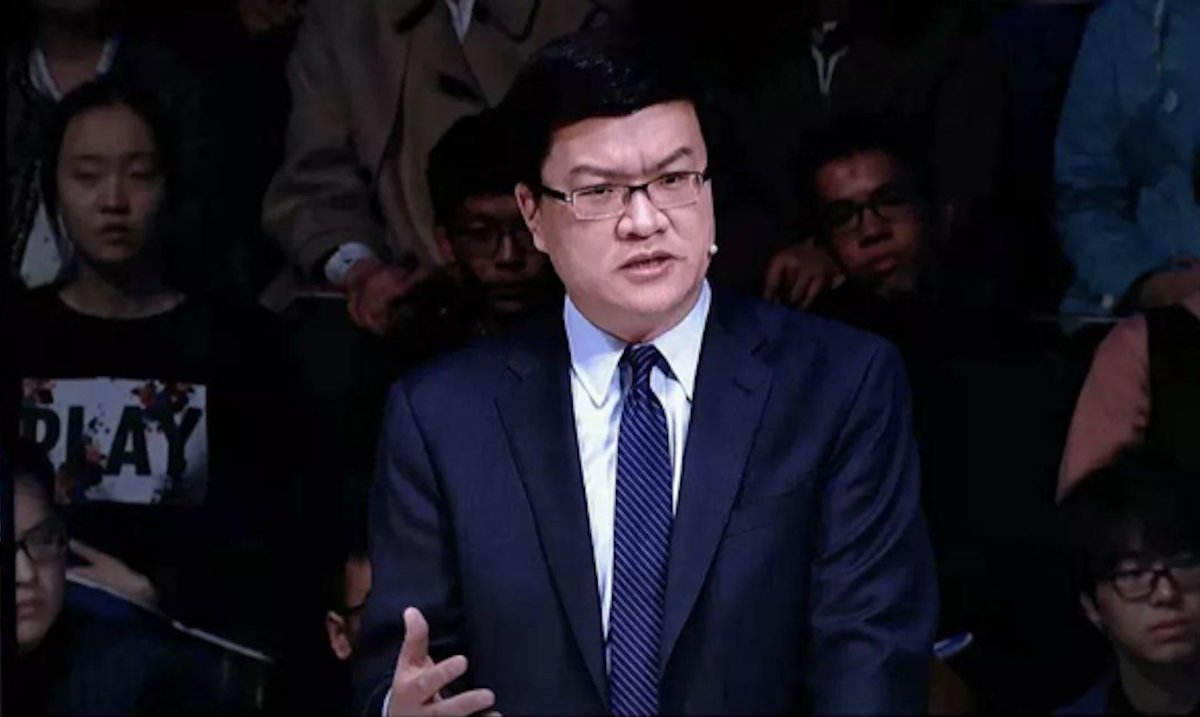
How is the #UkraineRussiaWar affecting the #EU's prospects? Its economy? Its place in the world?
▫️ Zhang Jian (张健): "It will further weaken the 🇪🇺's strength and int. influence and accelerate its marginalisation in the global geopolitical landscape."
sinification.substack.com/p/the-future-o…
▫️ Zhang Jian (张健): "It will further weaken the 🇪🇺's strength and int. influence and accelerate its marginalisation in the global geopolitical landscape."
sinification.substack.com/p/the-future-o…
🔹The author: Zhang Jian (张健) is the director of the Institute of European Studies at China Institutes of Contemporary International Relations (CICIR) – an influential think tank linked to China’s Ministry of State Security.
cicir.ac.cn/NEW/expert.htm…
cicir.ac.cn/NEW/expert.htm…

🔹Some context: Zhang’s assessment is more pessimistic than some in China, but several of his arguments are in line with those made by other Chinese analysts: e.g. the negative impact that the #war has had on the EU’s quest for #StrategicAutonomy. This is bad news for #China.
🔹Summary of Zhang's views:
1⃣ On the #EU's economy:
▫️ Prospects are bleak, de-industrialisation is set to continue and protectionist policies are expected to increase.
1⃣ On the #EU's economy:
▫️ Prospects are bleak, de-industrialisation is set to continue and protectionist policies are expected to increase.
▫️ #Germany’s economic woes and their potential spill-over effect on the #eurozone are particularly worrying.
▫️ #Debt levels within the EU are rising and are becoming increasingly unsustainable.
▫️ #Debt levels within the EU are rising and are becoming increasingly unsustainable.
2⃣ On the EU’s #StrategicAutonomy:
▫️ Dependence on the #UnitedStates (militarily, economically and with regards to energy) has increased and will probably continue to increase for the foreseeable future.
▫️ “Strategic autonomy” is no longer a buzzword in #Brussels.
▫️ Dependence on the #UnitedStates (militarily, economically and with regards to energy) has increased and will probably continue to increase for the foreseeable future.
▫️ “Strategic autonomy” is no longer a buzzword in #Brussels.
▫️ The emergence of a third pole within the #EuropeanUnion consisting of pro-#USA countries from eastern and northern Europe will continue to hamper the EU’s quest for strategic autonomy.
3⃣ On #EU integration:
▫️ Economic tensions between northern and southern European countries combined with political tensions between eastern and western European countries are set to increase.
▫️ Economic tensions between northern and southern European countries combined with political tensions between eastern and western European countries are set to increase.
▫️ Such rifts, economic difficulties, rising #populism and a weakened Franco-German tandem are weakening cohesion among member states and hindering further integration.
▫️ With a weaker economy, #Germany is expected to become more focused on its own national interests and less willing to support #France in its efforts to reform the EU.
4⃣ On the #EU internationally:
▫️ The EU’s image and influence are declining.
▫️ The EU is losing its balancing role in international affairs and risks becoming a mere follower of #US policies.
▫️ The EU’s image and influence are declining.
▫️ The EU is losing its balancing role in international affairs and risks becoming a mere follower of #US policies.
▫️ Geopolitically, the #EU and its member states are set to remain focused on their neighbourhood and their ability to project power globally will continue to decline. This also applies to the #IndoPacific which is increasingly becoming a mere “bargaining chip” with the US.
📣 For more insights from Chinese think tanks and academics on a range of international topics, don't forget to subscribe:
sinification.substack.com
sinification.substack.com
• • •
Missing some Tweet in this thread? You can try to
force a refresh










